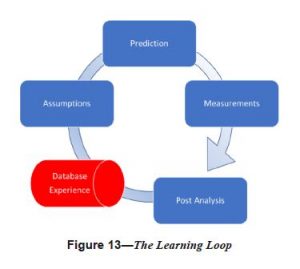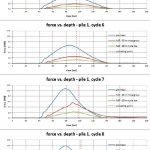Soil Modeling for Pile Driving Simulations Using a Vibro Hammer
Titel |
Soil Modeling for Pile Driving Simulations Using a Vibro Hammer |
 Soil Modeling for Pile Driving Simulations Using a Vibro Hammer |
Author(s) |
Bielefeld, M.W.; Moscoso, N.; Verbeek, G. |
|
Year |
2020 |
|
Language |
English |
|
Where |
Offshore Technology Conference held, Houston, TX, USA, 4 – 7 May, 2020
|
|
Cite as |
Bielefeld, M.W. ; Moscoso, N.; Verbeek, G.R., “Soil Modeling for Pile Driving Simulations Using a Vibro Hammer”, Offshore Technology Conference held, Houston, TX, USA, 4 – 7 May, 2020, OTC-30793-MS |
ABSTRACT:
As vibratory driving is increasingly used to install offshore foundations, especially for offshore windfarms, an accurate soil model is key to reliable pile driving predictions and, thus to improved project planning and execution. During the pile driving, the soil properties, and thus the soil parameters, do not remain constant. For vibratory driving, this effect is generally simplified by the application of the Beta Method, which was first proposed by Jonker in 1987[1]. While this simplified approach could be justified based on the computing capabilities at that time, a more sophisticated soil model should be used as part of pile driving simulations to ensure that the results are more accurate.
In this paper, the state-of-the-art soil model for vibratory driving will be described and then illustrated through two brief case studies where the pile driving simulation results are compared with the actual installation records. The paper will show that while the predictions are not perfect, they forecast the piledriving process realistically. To further enhance prediction capabilities, the paper will suggest that piledriving with vibratory hammers is monitored and that the recorded data be used for post-processing to gain a more in-depth understanding of the soil behavior.
DOWNLOAD:
You can download the entire article here after entering your name and e-mail address:




